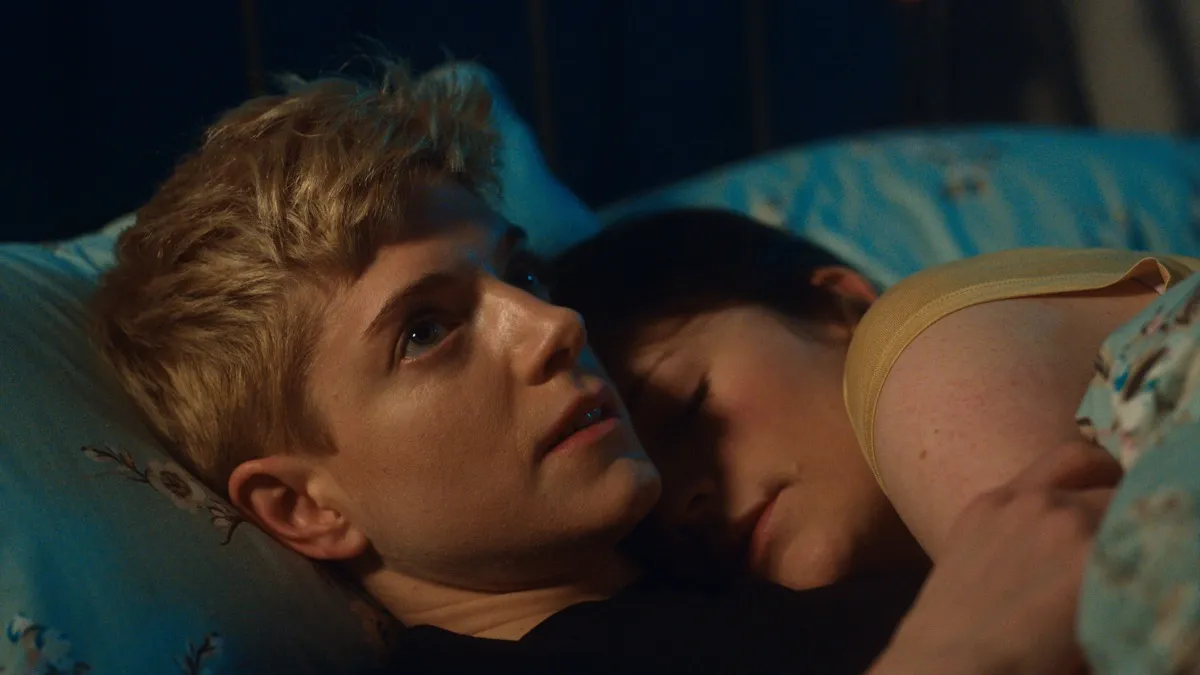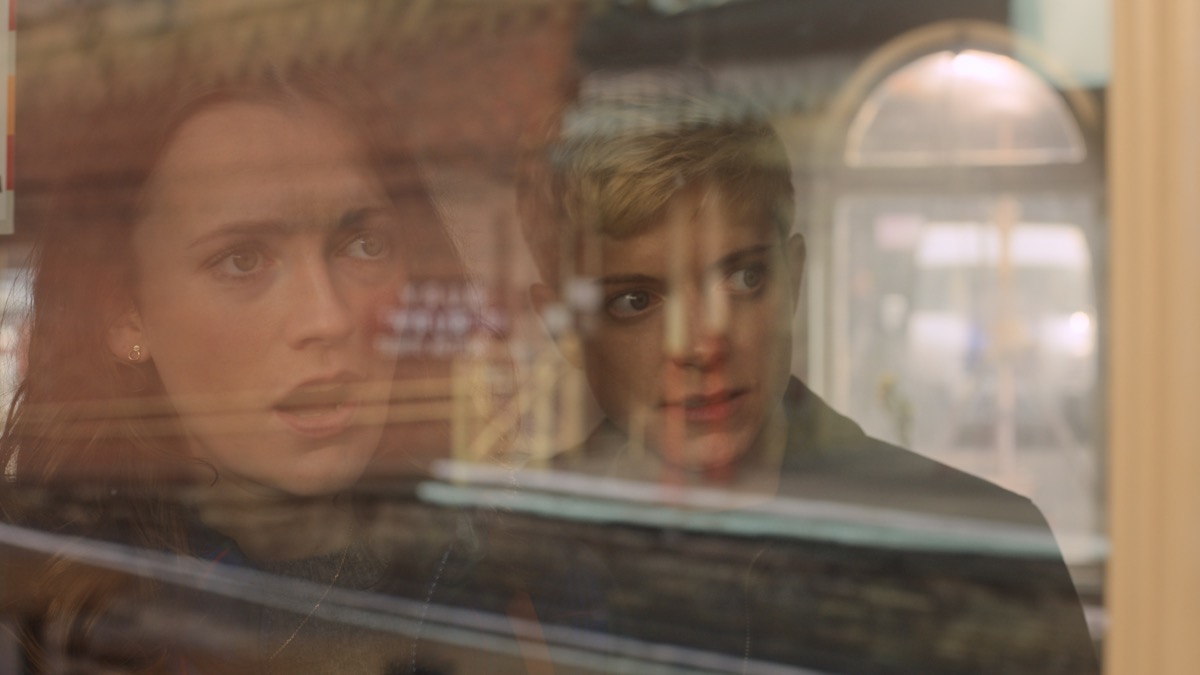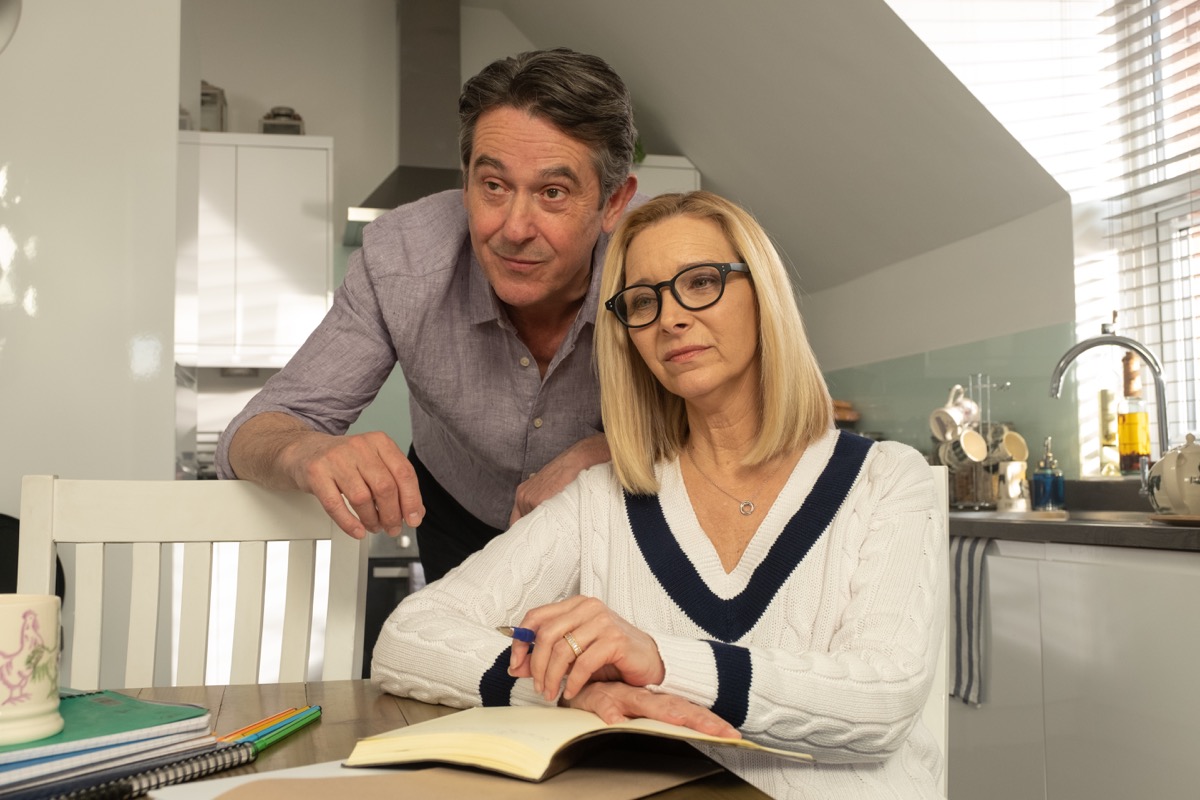During this incredibly dark and worrisome time, many try everything they can to stay positive—for their own mental health and the mental health of those around them. One coping mechanism for many people is trying to escape through watching films and television or playing video games. Netflix’s Feel Good is airing at just the right time. It’s the breath of fresh air we need right now, and it’s truly a feel-good experience.
It’s a comedy romance series that’s good for those of us with small attention spans. Each episode is only around 25 minutes long, so you can either get 25 minutes of peace every day for six days, or watch the show all at once and not have to look at the news for three hours. It’s a light watch in these heavy times, but it isn’t without depth as it explores two important themes: bi erasure and addiction. The show asks both hetero- and homosexuals to reflect on their treatment of bisexuals, but perhaps more importantly, it gives a face to all the addicts who could use our help during this pandemic.
Feel Good follows Mae, a queer Canadian comedian living in England. After performing one of her stand-up gigs, she meets George (short for Georgina). Mae describes George as a “dangerous Mary Poppins,” while she describes herself as “Bart Simpson.”
Despite Mae feeling like George is out of her league, and the fact that George has exclusively dated men in the past, the two hit it off quickly. The awkward initial getting-to-know-yous, the first kiss, the romance, moving in together—that all takes place within the first ten minutes of episode one. By the time the first episode ends, they’ve been dating for three months, but their romance lives primarily within the home.
The show is also a coming out story for George, as she struggles with internalized shame and the fear of telling her friends and family about Mae, let alone allow her first girlfriend to meet them. It feels like they’re social distancing together, which many couples are going through right now. The topic of whether or not romantic relationships will be able to survive the social distancing caused by coronavirus has been discussed frequently these last few weeks. Relationships will be tested; some will end, and others will come out unscathed.
For Mae and George, this social distancing involves lots of sex, joking around, and Netflix in bed with popcorn. They slowly discover new things about each other in the process, too—some positive and some negative. Their relationship is tested, but love prevails for them as it will for a lot of people.
Comedian Mae Martin is so charming, funny, and quirky as her character of the same name. She’s hyper, energetic, and blames all of her faults on the fact she was born premature. (Same, sis!) Along with starring in the series, Martin also wrote it (along with Joe Hampson), and the way she explores sexual fluidity is incredibly clever but also addresses a problem within the LGBTQ+ community: bisexual erasure.
Like George, Mae has also slept with men, but chooses not to label herself. George, on the other hand, is given a heterosexual label by default despite being in love with Mae; this is a common manifestation of bi erasure. Whether or not she wants to label herself as anything now, Mae constantly refers to George as her “straight” girlfriend. The show heavily confronts attitudes and misconceptions towards bisexuality: that bisexuals are simply straight people who are “experimenting” or that they’ll eventually dump their girl for the “easy” option.
Bisexuality is often not perceived as a sexuality that’s valid because people think they are just confused, experimenting, or going through a phase. The way Mae handles George’s sexuality might not sit well with bisexuals, which is understandable and by design, as the show tackles this complex issue in the LGBTQ+ community. Part of that complexity is also examining the root of Mae’s perspective. She’s notorious for chasing straight girls, so it’s no surprise that she doubts George’s attraction to her, especially when George tells her that she’s the only girl she’s ever been attracted to. (I’ve had that same experience, with a girlfriend who told me I was the only girl that ever caught her eye, who later labeled herself as “straight.”)
Because of this, Mae begins to display insecurity about her gender identity and often wishes she were a man, because she has the mistaken belief that that’s the type of partner that George wants. Through George’s struggle with her sexuality, though, we see a manifestation of the newfound realization that bisexuality isn’t necessarily 50/50. There’s often an unequal attraction, but despite George being perhaps more attracted to men, it doesn’t mean she loves Mae any less.
In an interview with The Guardian, Martin discusses why she chooses not to put a label on her sexuality, but it’s obvious through watching her new series that people will automatically label her a “lesbian” because she looks like Ellen Degeneres, just like people will automatically label George “straight” because she has only dated men in the past.
“If we just assume everyone’s a bit gay, then we wouldn’t have to go through that quite harrowing process of declaring yourself to be something else,” Martin says. Mae’s internalized biphobia and the confrontation of it is an essential topic to tackle, and Martin shows through her writing/comedy how incredibly ridiculous it is, because while we preach that sexuality is fluid, too often, the existence and complexity of bisexuality is still dismissed. It’s almost like Martin is holding up her microphone and calling us all idiots on a public stage.
That’s not the only thing complicating their relationship. Despite dating for three months, Mae has a secret she’s been hiding from George: She’s an addict in recovery. Mae’s mom—a truly iconic character played by Lisa Kudrow, who’s every stereotypical middle-aged white lady who asks to speak to the manager—spills the beans, and with George’s support, Mae starts going to Narcotics Anonymous again.
Throughout most of the show, Mae pretends that she has everything under control—that she’s fine—but she’s in denial. There’s a ringing in her ear when she’s faced with one of her addictive vices. It first appears when she kisses George, and then again when she sees her friend do coke. It happens several times throughout the series, and the viewer is always on edge about whether or not Mae will take drugs again.
But she has replaced her addiction to drugs with another: George. When George leaves on a day trip to a wedding, Mae turns into a puppy who isn’t used to being left alone. She becomes erratic, texting and calling George constantly. As Mae’s sponsor explains, “Addicts fixate all their life, energy on one thing.”
In the same interview with The Guardian, Martin explains that by doing her previous show on addiction, Dope, she learned that addiction isn’t applied to just substances. “The definition that I use is from [writer and physician] Dr. Gabor Maté, which is: addiction is something that you crave, find relief from and can’t give up, despite knowing the negative consequences,” she says. “His is such a broad definition and resonates with so many people, whether it’s our phones or food or sex or relationships. Things that we know are bad for us, but that soothe us when we’re finding the present moment difficult.”
This broad definition of addictive behavior, and having it manifest in Mae’s newfound love, is interesting to explore. Most of us have addictive behaviors that are treated as less serious than substance abuse, but they too can be destructive. “Your Love Is My Drug,” as Kesha once sang, and when Mae is without George, she says she feels like Pac-man, a “hungry, empty ghost.”
The show is, first and foremost, I would say, about not letting the past define a person. There’s still a stigma about addiction—how all addicts must be criminals—but it’s a disease that should be taken seriously like any other. Feel Good is autobiographical as, like her character, Martin is a Canadian comedian who moved to London. And like the show’s Mae, she also became addicted to drugs as a teenager and was kicked out by her parents as a result.
She’s clean now, having been through rehab, but showing this struggle of getting clean makes the show an incredibly personal one. It’s also an essential watch during this pandemic because it makes the audience reflect on what they could do to help addicts during this time. At the time of this writing, the U.S. government has eased some of its long-held restrictions on opioid addiction treatment, but that doesn’t help, say, alcoholics.
I was speaking with a friend from New Jersey whose father is a recovering alcoholic. Her parents are divorced, and she lives with her mother, so she can’t be with her father while we’re all social distancing. He was sent home from his job—for good reason, of course—but she told me her worries about the risks.
“It’s best for recovering addicts to keep busy so they don’t fall into any old routines,” she explained over text. “I worry my dad is going to grow bored and want to revert to drinking to pass the time. Also, financial stress from not working is another thing I worry about. Stress and boredom don’t mix when you’re trying to stay sober.”
I also asked her what she thinks could help addicts most at this time. “Because his AA meetings are being canceled, I think they should set up virtual meetings so they can stick to a routine. Many people in recovery go to meetings once a day, and that being disrupted can be difficult.” (Following our discussion, I found a resource created to help recovering alcoholics attend online AA meetings during this outbreak.)
Feel Good is short yet satisfying like Fleabag (of course, the latter has a whole other level of genius). They will both make you lovesick right now if you’re home alone, but Feel Good is, I would say, more important in the current climate, as it illustrates the importance of helping our most vulnerable right now, especially those who could fall back on addiction. Feel Good asks us to look out for others but also reflect on how we treat them (for example, how we treat the bisexual people in our lives). By doing so, perhaps we can come out of this pandemic as better people.
(images: Netflix)
Want more stories like this? Become a subscriber and support the site!
—The Mary Sue has a strict comment policy that forbids, but is not limited to, personal insults toward anyone, hate speech, and trolling.—











Published: Apr 10, 2020 03:35 pm